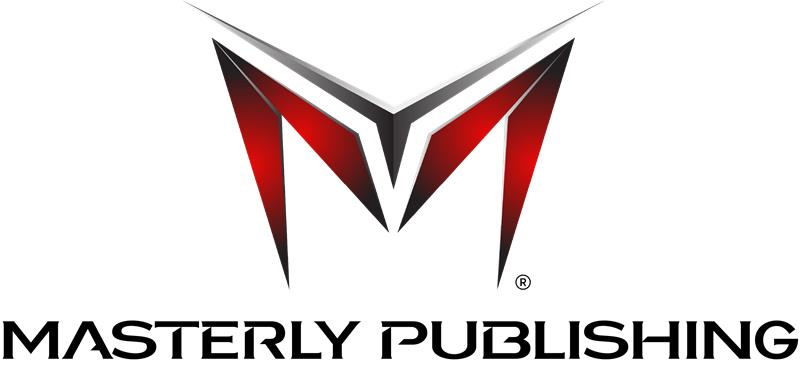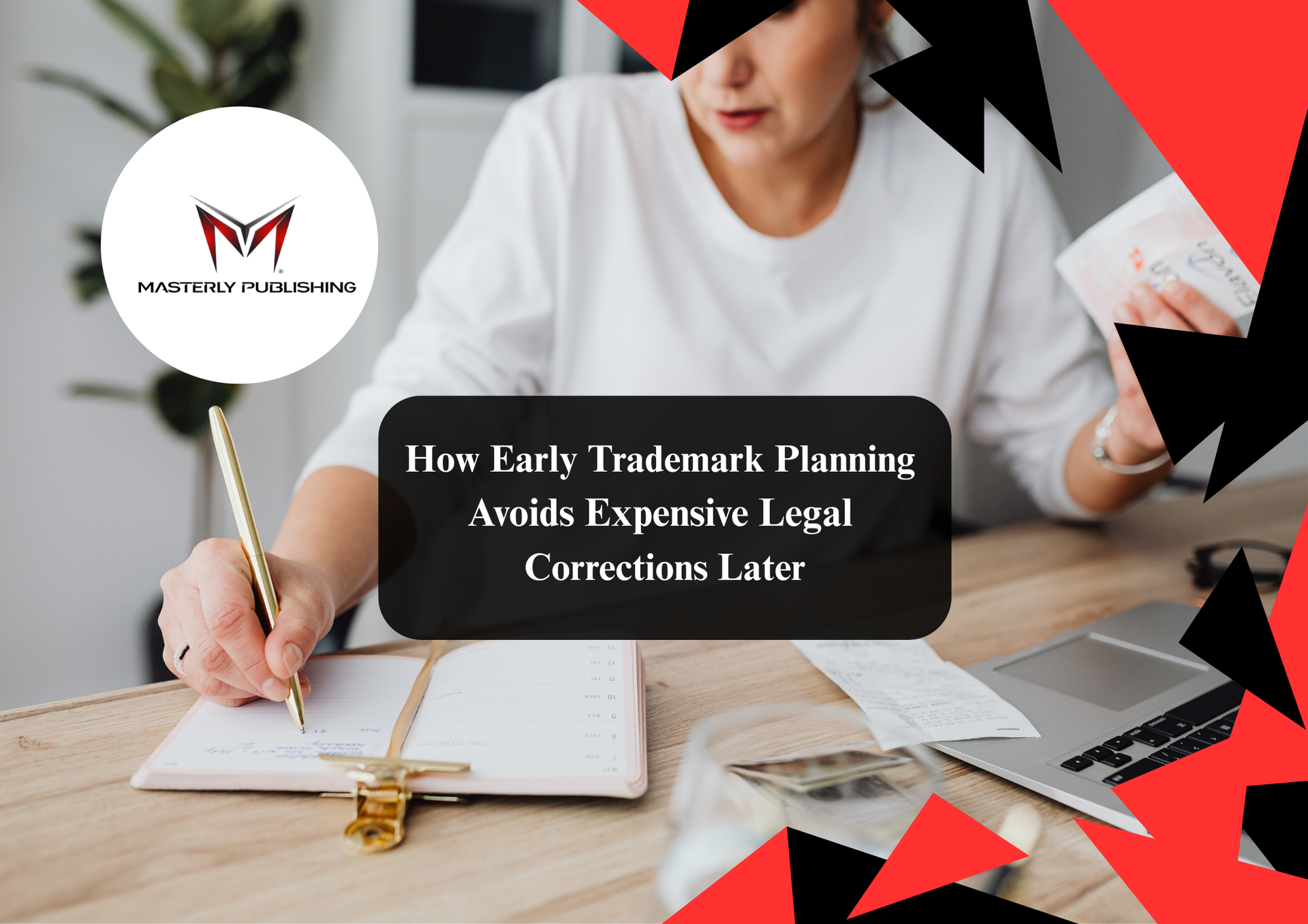Copyright Transfer & Licensing Services
Expert Legal Guidance for Authors and Creative Professionals
At Masterly Publishing, we understand how important it is to protect your copyrighted work while also maximizing its potential for publication, adaptation, and distribution. Our Copyright Transfer & Licensing services help writers, authors, and creators manage copyright assignments, licensing arrangements, and ownership transfers with clarity and legal accuracy.
Whether you're self-publishing, working with a ghostwriter, selling film/TV rights, or collaborating with co-authors, we ensure that your property rights are clearly defined and enforceable. Our team helps you avoid conflicting transfers, manage ownership under a sole proprietorship or partnership, and properly file agreements that comply with the Copyright Act and other applicable laws.
What Is Copyright Transfer & Licensing?
Copyright transfer
is the legal process of changing who holds the copyright owner title. It’s often formalized through a copyright transfer agreement or assignment contract, allowing the original copyright holder to legally give or sell the rights to another person, publisher, or company.
Copyright licensing
on the other hand, allows the owner to give permission to others to use the work under defined conditions—without giving up ownership. These terms are often stated in a copyright license agreement, which may be exclusive or non-exclusive.
Types of Copyright Licenses We Handle
Exclusive Licenses – Rights are granted to a single party; ideal for publishing contracts or film deals.
Non-Exclusive Licenses – Allows multiple users to access your work under specific terms.
Sublicensing – Useful for licensing works to international publishers or platforms.
Creative Commons and Custom Licenses – For authors seeking to allow partial public use.
Why Copyright Transfer & Licensing Matters
If you're collaborating with other creators, ghostwriters, illustrators, or selling to media companies, having clear legal agreements is crucial. Without proper documentation, disputes can arise over who owns what and how content can be used.
Here’s why our service matters:
Avoid legal conflicts by defining usage rights in clear language.
Protect royalties and ensure consistent revenue streams from licensing.
Maintain creative control even while granting access to third parties.
Enhance your publishing deals by clarifying rights ownership with agents and publishers.
Knowing how to get a copyright license or how to transfer copyright ownership is not just legal housekeeping—it’s a strategic step in managing your author brand.
Examples of When You Might Need This Service:
- Selling a novel’s film or TV rights
- Transferring rights from ghostwriter to author
- Licensing a book to a foreign publisher
- Managing statutory licenses for educational or library distribution
- Assigning rights to an employer or publisher
- Using third-party content in your publication with creative commons licenses
These agreements often involve a valuable consideration, such as royalties or a one-time payment, to be legally enforceable.
What’s Included in Our Copyright Services?
Our Copyright Transfer & Licensing services are built to support creators at every stage of their publishing journey:
Contract Drafting & Review
- Drafting copyright transfer contracts and copyright assignments
- Customizing copyright license agreements for books, eBooks, audiobooks, and adaptations
- Drafting statements of credit, royalty shares, and term limits
Licensing Authority & Documentation
- Reviewing Creative Commons licenses, statutory licenses, and sublicenses
- Clarifying who holds ownership when a book is published under a sole proprietorship, corporation, or employer
- Handling conflicting transfers and outdated contracts
Rights Management & Public Use
- Permissions to use third-party works, images, or excerpts
- Managing rights for libraries, schools, and international publishers
- Creating clear copyright notices, ISBN records, and usage statements
Copyright Protection & Registration Support
- Advising on filing with the U.S. Copyright Office
- Explaining the role of constructive notice and effective dates
- Guiding authors on how to write copyright transfer language
- Helping you record ownership and licensing in your publication or on your copyright page
Why Is It Important to Follow Copyright License Rules?
Failing to manage copyright and licensing properly can result in lost revenue, lawsuits, or disputes over ownership. In publishing, improperly executed transfers can lead to:
- Loss of creative control over derivative works
- Disputes during intestate succession if the original copyright holder passes away without a will
- Issues with reprinting or reassigning rights
- Unintended entry into the public domain
- Breach of contract with federal institutions, media outlets, or co-authors
Additionally, authors who ignore these rules may lose the ability to reproduce, distribute, or control publication on platforms like Amazon, Audible, or their own website.
Understanding the Legal Foundation of Copyright
Copyright law protects your creative work as a form of personal property, giving you specific exclusive rights to reproduce, publish, distribute, and adapt your content. These rights are automatically granted upon the creation of an original work, but formalizing them through contracts and licensing agreements ensures your protection in business and legal settings.
It’s important to note that copyright ownership is distinct from physical ownership. For example, even if someone buys a copy of your book, they don’t own the copyright—it remains with the copyright holder unless transferred through a legally binding form or contract. If you grant usage rights to someone else, the terms of that permission must be clearly defined and documented.
A helpful side note for authors: If your work is intended for collaborative or commercial use (like ghostwriting, anthologies, or media licensing), seeking professional assistance ensures that your rights are not unintentionally waived. Proper contracts help clarify who owns what, when and how they can use it, and what you’ll pay or be paid in return.
For more information or helpful links on how to protect your work and navigate licensing, visit our website or contact Masterly Publishing directly. We’re here to help you safeguard your intellectual investment every step of the way.
Key Elements We Handle
When you work with Masterly Publishing, we assist with the following:
📘 Copyright notice creation for your book’s opening page
📎 Proper attribution and credit for co-authors and contributors
🖊️ Customized contracts for licensing, assigning, or recording copyright details
📌 Ensuring compliance with federal publishing laws and IP standards
🗂️ Reviewing your documents for clarity, legal validity, and future payments
Who Benefits from This Service?
Our service is ideal for:
Whether you’re producing fiction, non-fiction, children's books, or scholarly works, we ensure every document is clear, compliant, and customized to your goals.
Frequently Asked Questions (FAQs)
How Do I Get a Copyright License?
To obtain a license, you need a legally sound contract between the copyright owner and the licensee. Our team helps you draft or review these contracts and ensure they include key details such as term limits, royalties, and how to distribute or reproduce the material.
Can You Transfer Copyright Ownership?
Yes. A copyright transfer can be completed through a signed agreement. We handle this process from start to finish, ensuring that it is legally binding and clear. If you are a ghostwriter or publisher, we can help write or review your transfer copyright ownership contract.
Do Authors Transfer Copyrights to Publishers?
Yes—particularly in traditional publishing. However, this doesn’t always have to mean giving up all control. We help authors understand what rights they’re assigning, how to negotiate terms, and how to protect derivative works or negotiate limited-use terms.
What Is the Role of the Copyright Office?
The Copyright Office is where ownership can be formally recorded, giving your work stronger legal protection. Filing here provides constructive notice to the public that your copyrighted work has legal protection.
What If I’m Self-Publishing?
Even self-published authors need clear license terms—especially when hiring cover designers, editors, or marketing professionals. From managing your ISBN number to writing the copyright page and addressing public domain risks, we’ve got you covered.
Take Control of Your Creative Property
At Masterly Publishing, we combine legal precision with a deep understanding of the publishing process. Our team is dedicated to helping you safeguard your work, assert your rights, and generate income through legally sound copyright strategies.
Let’s protect your creativity—from publication to licensing.














